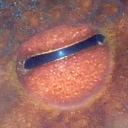Yahoo Answers is shutting down on 4 May 2021 (Eastern Time) and the Yahoo Answers website is now in read-only mode. There will be no changes to other Yahoo properties or services, or your Yahoo account. You can find more information about the Yahoo Answers shutdown and how to download your data on this help page.
I have an excellent question for physicists, and scientists; it regards lithium ion batteries. Please read below for details. Can you help?
Ok: It says on warnings about Lithium Ion batteries not to store in very cold or hot temperatures. It flashes in my mind the Mars Rovers, like Curiosity. I looked up its power system. The power system of Mars rover has two lithium ion batteries as back up power. Main power source though is decay of Pu-239; as heat...converted to raw electricity. Now I know surface of Mars gets to -40 degrees F. So if cold is bad on lithium ion batteries; why are they used on Mars? Could this be a myth that cold is bad on lithium ion batteries, then? I can understand heat being bad on any electronics like batteries; but cold seems to help them. I might do my own myth busters on this subject; if no one can help me. By the way: I freeze treat all computer equipment that gets stupid with much success. Help explain please why cold is bad on lithium ion batteries; but they are used on Mars...where it is cold A.F.
5 Answers
- UserLv 73 months agoFavourite answer
I'm guessing here
but here's my guess:
Guess #1 - the batteries are actually kept warm so that they are usable during very cold weather. This seems most likely given the heat generated by the "atomic battery".Guess #2 - the batteries simply aren't used during very cold weather
The problem with very cold weather is that it basically stops the chemical reactions going on in the batteries. It's not like they're going to explode or anything. Keep them above a certain temperature and they will function normally.
Given an "atomic battery" that functions by generating heat, it seems like it would be a simple thing to use some of that heat to keep the batteries in an active temperature range.
- garryLv 63 months ago
first of all , the batteries are packed in insulation to protect them from hot and cold . they are charged by solar panels , and are fairly large compered to a mobile phone , that how . radio active material will supply the electrical needs and lithium , is fine for back up , just remember they will have solar cells to keep them charged .
- RobsteriarkLv 73 months ago
The batteries are both heated and insulated.
There’s no “myth” about it. Just basic physics and chemistry. The batteries store energy and then release it through a reversible chemical reaction. ALL chemical reaction rates are controlled by temperature, chemical concentration, and agitation.
In this instance there’s no agitation, the chemical concentrations were fixed when the batteries were first manufactured (and decrease over time) so the only real factor here is temperature. Frozen electrolytes cannot react much: so cold kills batteries. ALL batteries. But before that even occurs, colder electrolytes have slower molecules. Slower molecules interact with each other less often so the rate of chemical reaction slows down.
How cold affects electronic circuits is totally different. Within limits, cooler electronics run better mostly because electrical resistance tends to rise with heat. But it’s totally different process.
You’re comparing apples with oranges.
- Anonymous3 months ago
This isnt an excellent question. They probably insulate and heat the battery via solar.
- ignoramusLv 73 months ago
You have given the answer yourself : there is a long-lived power source on board. It would not take very much power to keep the batteries at a reasonable working temperature. I presume that there is other equipment which also requires a reasonable working temperature. Why do you think that the Rover is permanently frost-bound. You don't think NASA engineers haven't thought of that ?





